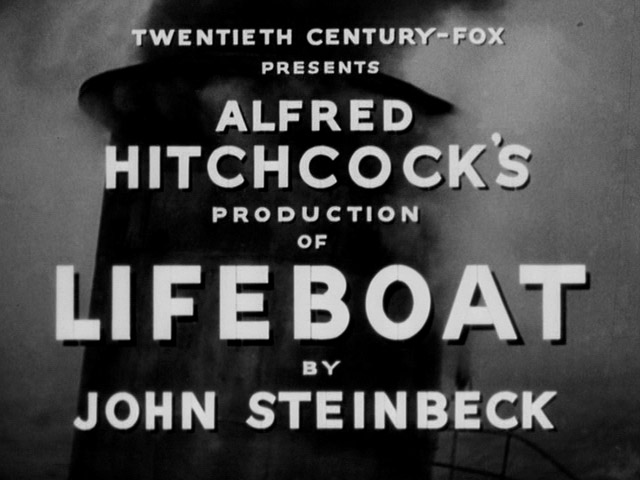
I have a working theory that the better Alfred Hitchcock got as a filmmaker, the worse he got as a director. The more he gained mastery over the parts he cared about, the more myopic his vision of the film as a whole got, and things like performance, pacing, and rhythm went right out the window. According to Wikipedia, Lifeboat is Hitch's 31st film, with 23 more to follow, and coming as it does roughly halfway through his career it seems to support my theory at least incidentally. The casualties of Hitch's later genius do not suffer here, with some pretty solid performances and tight pacing. The film is downright exciting from the first frame to the last, and although the camera shies from the darker moments the story definitely does not.
The anti- or pro-war message of the film is interesting, especially Hitch's defense of writing a strong Nazi character in the middle of WWII as necessary to prove his point that "the Allies needed to stop bickering and work together to win the war." That, I can handle, and watching it 60 years later with a more even-keeled view of Germans in general I definitely could not have predicted whether or not Willi was going to turn on them or prove to be their salvation after all. The women in the story are given a reasonable shake, starting out as more than just girlfriends and wives and only devolving into lovers when desperation takes hold and everybody starts looking for someone to die with. In fact, I laughed right out loud when upper-class journalist Connie and rough, tattooed sailor Kovac skipped all the little back-and-forth flirtations and went straight from loathing each other to kissing furiously when they believed death was just around the corner. "We might as well go down together, Connie," he says. I wish I could say the charming Negro was as well handled, but at least he was a noble, respectable character, even if he was a two-dimensional one who knew his place. Hell, even Casablanca fucks that one up. (To be fair, they do agree to give him a vote in their "democracy" early on, without batting an eyelash. That's a little progressive, right?)
The story had the right blend of characters, from classes and races and genders and attitudes, without feeling artificial, and the events as they unfold are pretty great. Then again, I suppose working from Steinbeck makes that kind of easy. Anyway I'm thoroughly impressed and I'm glad this was the random movie I grabbed tonight out of my pile of should-watch movies.

No comments:
Post a Comment